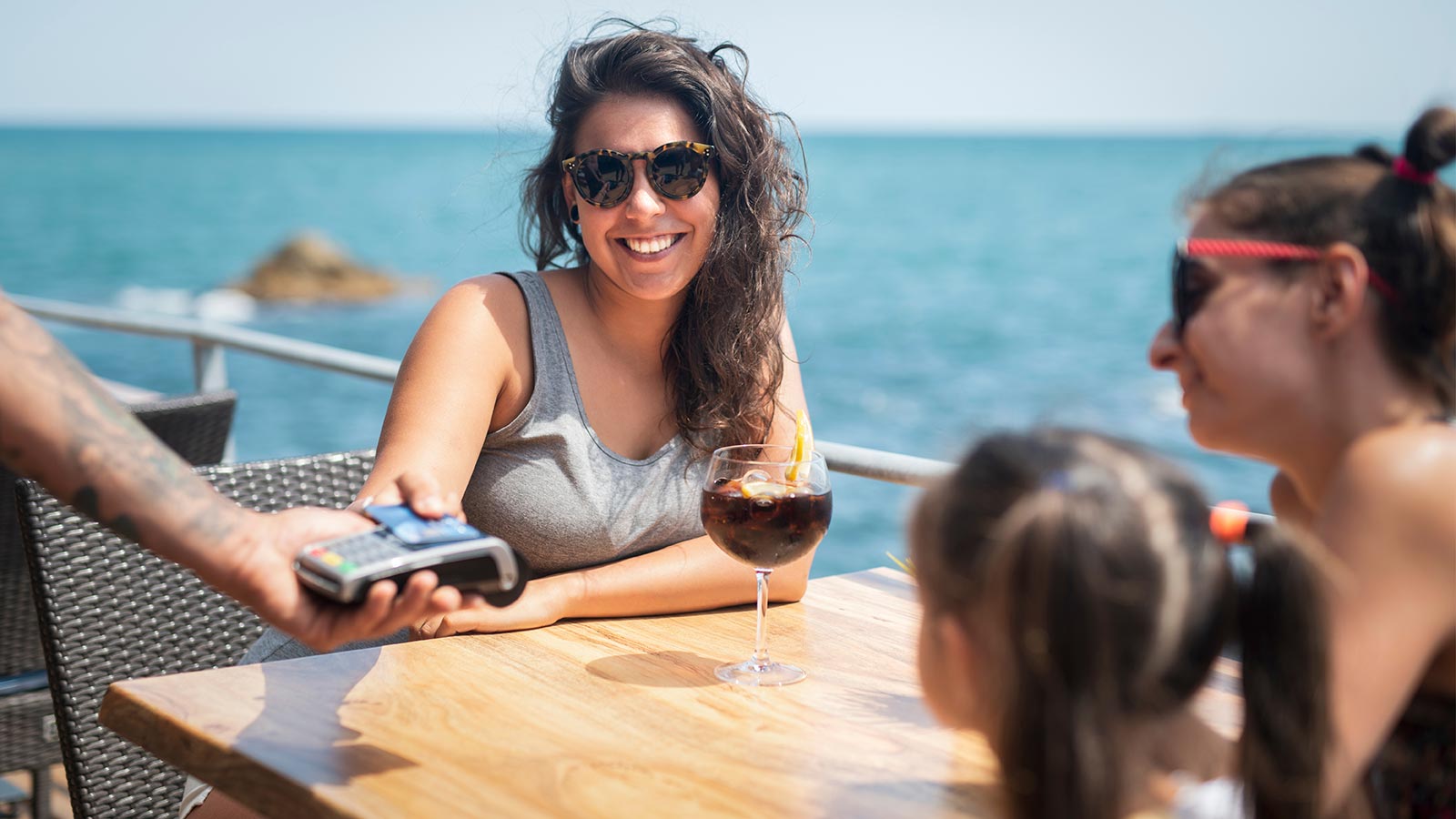
Traveling is expensive on its own. If your debit or credit card is compromised, your vacation time is sure to be less than sunny. Keep your finances secure with these tips on how to keep your money safe while traveling.
Make sure your bank information is up to date
If your account does get flagged by your bank with a potential fraud threat, the most vital step is to have an up-to-date recovery phone number on file. Your bank will cancel the transaction and call the phone number on file to verify the purchase. However, if the recovery phone number is your home phone number (i.e., the one not on vacation with you or, worse yet, the phone that has been unplugged since 2010), your bank will have no way of contacting you.
Download your bank’s mobile app
Most banks have a mobile app available for download on your smart device. Downloading the application will not only save you log in time, but it will also save you time worrying. Usually, the app will give you access to:
- Place a temporary block.
- Check your account balance.
- Review transactions.
If you misplace your card, placing a temporary block on your account may calm your nerves while trying to locate your physical card. If you use the mobile app to check transactions to your account and something isn’t adding up, this will also necessitate a need to place a temporary hold before cancelling the card completely. Lastly, a mobile app makes checking your balance easy to make sure you’re good to go before making your next purchase.
Add your primary card to your phone’s mobile pay
Adding your card directly to your phone’s mobile wallet will mitigate some risk associated with entering your card information on a website. For example, if you’re purchasing tickets to an event online for your trip, consider using your mobile wallet to confirm the purchase instead of typing it in. From a bank’s perspective this is a more trusted transaction. Additionally, having mobile pay is a great backup if you can’t locate your physical card.
Where are you headed?
Are you travelling abroad or locally? If you’re taking a weekend getaway to a neighboring state, alerting your bank doesn’t need to make your to-do list. Your bank account is not likely to get flagged in this instance. However, purchases pinging from your card far away from home might send a red flag to your provider. In the case that you’re travelling abroad, you can either notify your bank ahead of time or just ensure your cellular device works in your end destination.
Best practices
Sometimes we forget best practices to keep our money safe when we’re away from home. Here are some additional tips that travelers and everyday users should consider.
- Save your customer service representative as a contact on your phone. You could call your issuer if you lost your card. This will aid you in finding the phone number quickly.
- Limit your ATM use to those inside of banks. These are often more secure.
- Be aware of your surroundings. Cover your PIN when you enter it into any device.
- Have a password protected phone or mobile application. Most phones will allow you to use your face ID to verify your identity.
- Keep your wallet in a safe and secure location.
Give yourself added protection by using a credit card. This allows you to check and validate expenses when you return home. There’s no way to validate purchases you’ve made with cash in retrospect. In addition, it’s much better to keep $500 of budget “wiggle room” on your card (which can be cancelled if need be) rather than $500 in cash in your back pocket. If you happen to purchase an item with a credit card at an establishment that becomes compromised, most companies have a zero or limited liability for fraud within their terms and conditions, so you get your money back.
Vacation should be fun! Worrying about keeping your finances secure shouldn’t make your traveling itinerary. So, use these tips to keep your money safe while traveling to mitigate any risk associated with heading out of town. If you’re ready to plan your next trip, read our article with tips for a budget-friendly vacation.
Need help with your financial goals?
While you can learn more about our products on this website, this information is no substitute for the guidance of a qualified professional. If you’re serious about assessing your financial wellness, contact a financial professional.
Do you already have an agent?

